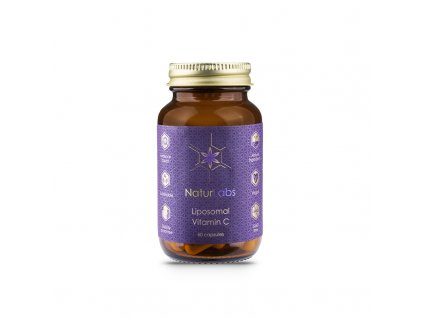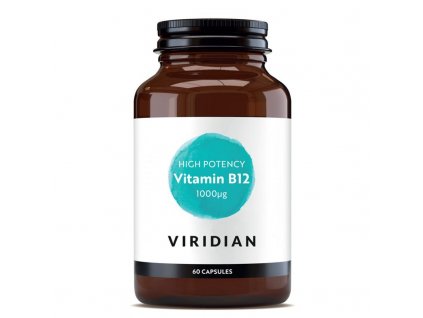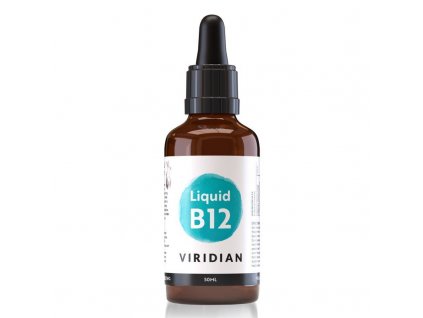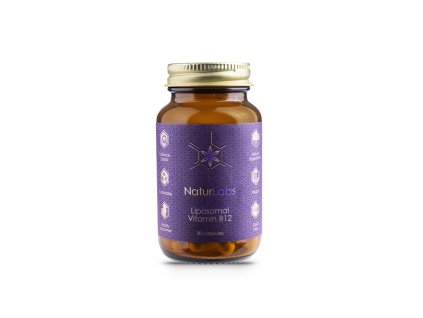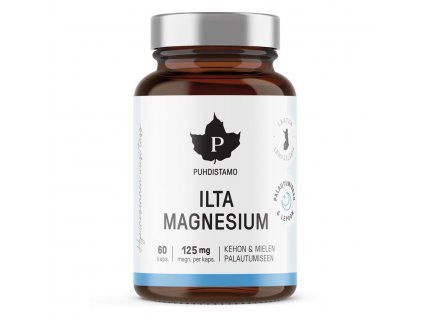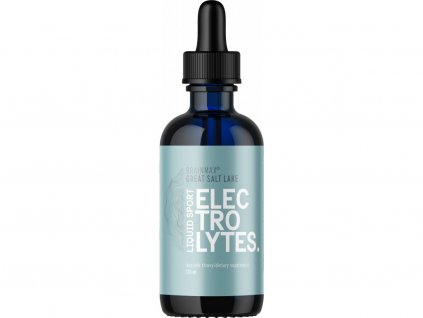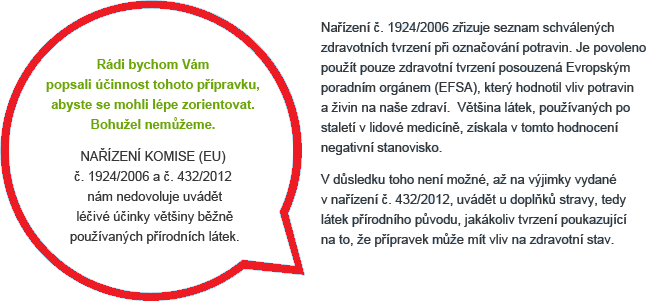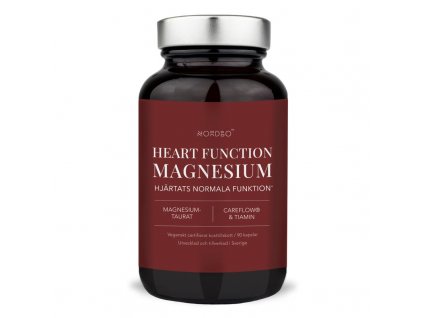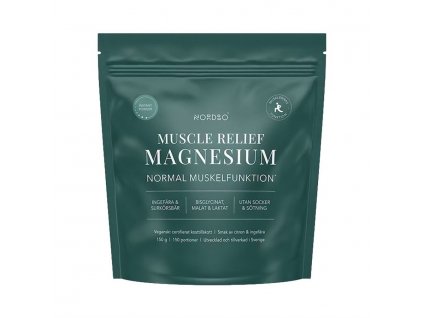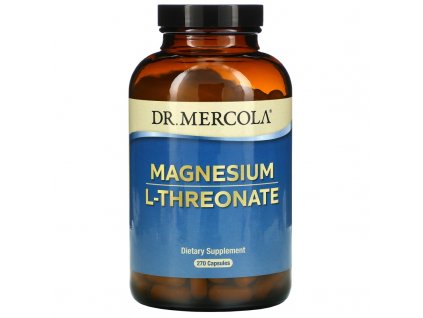Magnesium Tri-Magnesium Dicitrate, 120 capsules
Related products
Product detailed description

Ultra-pure Woldohealth magnesium without additives, from German production in Hamburg in laboratory quality and in the form of highly effective tri-magnesium dicitrate, which is quite difficult to find on the market. This form is characterized only by benefits and maximum bioavailability for the human body, without side effects. In an amber glass jar, which serves to protect against sunlight and ensures its optimal durability, we find 120 capsules, which provide an optimal daily dose of magnesium for approximately 1 month. The capsules are of vegetable origin (vegan capsules). It contains only natural substances without additives, magnesium stearate, dyes, sweeteners, flavors, stabilizers, lactose, gluten and GMOs. It is suitable for vegans, vegetarians and allergy sufferers.
Different manufacturers often present their form of magnesium as the most superior and best, while on the market there are often competing forms of magnesium bound to amino acids (chelates), lactates, carbonates, chlorides, citrates, etc., as well as colloidal and ionic forms and nano-particle solutions. However, the fact remains that it seems appropriate to saturate your supplementation with various forms that show the best bioavailability and the fewest side effects, because it is not clear which form (and for whom) is the best and at the same time, variety always acts as the main and optimal factor in the end for several reasons. That is why I myself include the rather unconventional and little-known tri-magnesium dicitrate and recommend it as one of the most important forms of magnesium on the current market to everyone else, especially athletes and mentally and physically stressed people with gaps in their diet.
The magnesium compound in the form of trimagnesium dicitrate (3:2) is produced by combining magnesium and a citric acid salt. Citric acid is an organic binding substance that already occurs naturally in the body and can therefore be processed quickly. The advantage is that the body absorbs citrates quickly and can immediately supply itself with the necessary mineral. Citrates have the highest bioavailability of all magnesium compounds, but are only stored for a short time, which is why Tri-Magnesium-Dicitrate is recommended especially for athletes who want to optimize muscle activity and need to quickly replenish magnesium lost through sweating and/or for people who have no problem dividing their intake into multiple daily doses and thus benefit from the maximum (but unstable) bioavailability of this form.
Magnesium is a vital mineral that contributes to the natural cellular electrolyte balance with optimized impulses to help us sleep better, calm our muscles, and improve the health of their normal activities (including the heart) and normal mental (brain) activity. Magnesium helps us become mentally and physically stronger and more resistant to ailments of all types, especially fatigue and exhaustion.
In one daily dose of 4 capsules of this product, we find 300 mg of elemental magnesium, which corresponds to its reference daily intake. For top athletes and very busy people, it is recommended to take a higher dose according to individual needs. Each capsule contains 500 mg of pure magnesium tri-dicitrate. This dicitrate form has twice as much magnesium (approximately 16%) compared to regular citrate, which contains only around 8%, making it one of the best price-performance magnesium products in a capsule on the current market, especially thanks to the pharmaceutical quality and purity of the ingredients and the design of WoldoHealth's packaging.
Why is magnesium important for our body?
As one of the most abundant minerals in the body, magnesium is important for approximately 300 enzymatic reactions in the body, including protein synthesis, muscle and nerve relaxation, blood glucose control, blood pressure regulation, and energy production. Magnesium also contributes to the structural development of bones. It is also primarily found in bones. It is also important for many other physiological functions.
Magnesium is the king of minerals, just as vitamin D is the king of vitamins.
Magnesium is responsible for the proper functioning of basic metabolic processes, including DNA synthesis, including replication, and muscle contraction. It plays a crucial role in energy production, what we call ATP (adenosine triphosphate) is actually Mg-ATP. We must not forget that most biological enzymes catalyze the stress response using magnesium.
Approved claims according to EFSA:
- It contributes to reducing fatigue and exhaustion.
- Contributes to electrolyte balance.
- Contributes to normal energy metabolism.
- It contributes to the normal functioning of the nervous system.
- Contributes to normal muscle function.
- Contributes to normal protein synthesis.
- It contributes to normal mental activity.
- It contributes to maintaining normal bone health.
- Magnesium contributes to the maintenance of normal teeth.
- It participates in the process of cell division.
The body demands and loses magnesium every day from performing normal functions such as muscle movement, heartbeat, and hormone production. Although there are many natural foods containing magnesium, it is advisable to supplement as it can be difficult to consume sufficient amounts through diet alone. Here are some of the common symptoms of magnesium deficiency:
- Muscle cramps (twitching, restlessness, tremors)
- Headaches
- Brain fog
- Fatigue
- Trouble sleeping
What should you pay attention to when consuming food?
Let's not forget that from a diet rich in Mg2+, about 30-40% is absorbed. So at 350 mg, the utilization will be approximately 105 - 140 mg (5 mmol Mg2+).

Examples of foods particularly rich in magnesium include (in order of magnesium content):
Foods (100 grams) magnesium content (mg):
- Seaweed, agar - 770 mg
- Coriander leaf (spice) - 694 mg
- Pumpkin seeds, dried - 535 mg
- Cocoa, dry powder, unsweetened - 499 mg
- Basil - 422 mg
- Cumin seeds (spice) - 386 mg
- Brazil nuts, dried - 376 mg
- Parsley - 372 mg
- Almond butter - 303 mg
- Whey, sweet - 176 mg
- Leek - 156 mg
- Cabbage, raw - 88 mg
- Spinach - 79 mg
I prefer the above list of foods and deliberately do not list problematic sources, which in many cases have an antagonistic effect (i.e. they contain an excess of minerals, phytates and other substances that, on the contrary, block magnesium or directly compete for transport systems in the body). It is important to prioritize organically produced foods - chemical fertilizers and pesticides do not contribute to optimal magnesium levels in the soil.
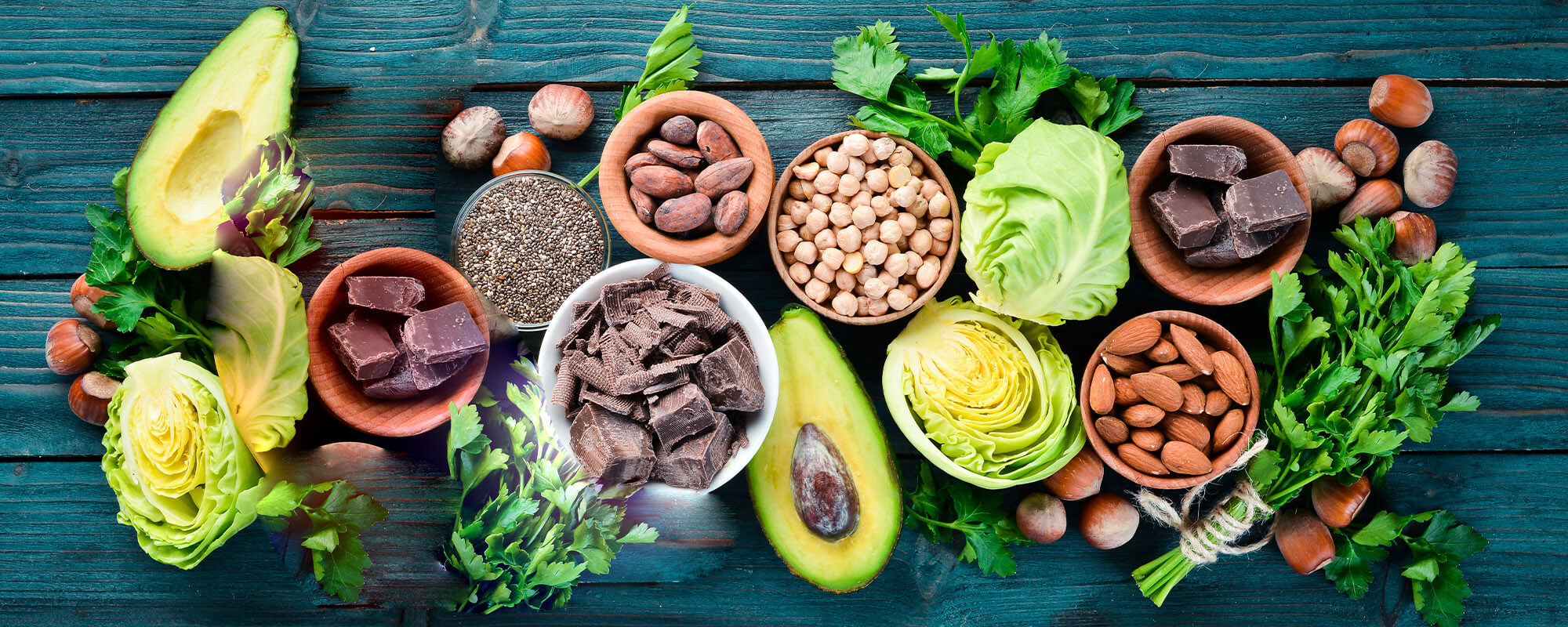
For maximum potential of the magnesium supplement, do not combine with milk and ideally without the foods on the list below. Magnesium interferes with phosphorus and potassium:
- A diet rich in phosphorus (meat and poultry, nuts, milk and legumes).
- A diet rich in potassium (avocado, bananas, oranges, potatoes, dairy products and eggs).
Some other sources rich in magnesium, as many of you suspect, may not be suitable from a health perspective, so there is no point in prioritizing them:
- coffee
- tea
- nuts
- legumes (phytates, phosphorus)
- whole grain cereals
- dairy products (problematic due to calcium content - antagonist)
- tofu (if you eat soy, look for the fermented version called nigari - magnesium chloride is used in the manufacturing process to coagulate the soy milk)
- cow's milk (calcium antagonist - interference at the muscle level during muscle contraction)
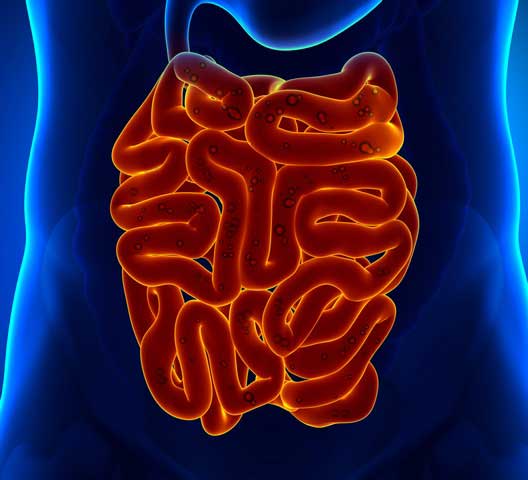
What is the bioavailability of magnesium in our body?
The Reference daily intake of magnesium ions is approximately 400 mg for an adult man and approximately 300 mg for a woman, which corresponds to an average of 15 mmol Mg2+.
The main organ where magnesium is absorbed is the small intestine, but resorption also occurs in the large intestine (hereinafter GIT).
From a diet rich in Mg2+, about 30-40% is absorbed. So at 350 mg, the utilization will be approximately 105 - 140 mg (5 mmol Mg2+).
We must not forget that the level of ions absorbed from the GIT is greatly influenced by the composition of the diet, the hormonal balance in our body and, last but not least, the condition of the intestines (chronic intestinal inflammation and other problems have a negative effect).
Some factors that increase the resorption of magnesium ions include:
- Vitamin D (I don't mean the precursor cholecalciferol), but its active metabolite calcitriol, there's no need to write about the fact that almost all of us don't have optimal vitamin D levels (I recommend a biochemical test),
- Parathyroid hormone (PTH) - participates in the conversion of the vitamin D precursor into the active form and thus indirectly helps the resorption of magnesium,
- Growth hormone (HGH) - and its optimal levels,
- Thyroxine - thyroid hormone (T4) - follicular cells need iodine to function properly (more is not better),
- Vitamin B6 - pyridoxine (water-soluble, natural source: liver, pork, mackerel, eggs, spinach, avocado, nuts...).
Some factors that reduce or block the resorption of magnesium ions:
- A diet extra rich in fats and proteins (the reason is the formation of poorly absorbable complexes that prevent, among other things, reabsorption),
- Diet high in Ca and Zn ions (pay attention to the balance of the diet, calcium and zinc compete with magnesium ions and transport systems; therefore, do not eat zinc together with magnesium, similarly do not eat vitamin C with selenium...),
- Be careful with fiber (predominance of fiber, artificially supplied - psyllium, or natural, e.g. from vegetables; be careful not to follow some alternative nutritional styles too much), it also affects reabsorption
- Aldosterone (the precursor is cholesterol, linked to Conn's syndrome, so be careful of an inappropriate lifestyle - stress, excess fat in the diet...).
- Medication - be careful with the aminoglycoside antibiotic family (bactericidal antibiotics), some immunosuppressants, theophylline (respiratory treatment), amphotericin B (broad-spectrum antibiotic for mycoses), chemotherapeutics and antibiotics block magnesium transport in the kidneys (TALH) - especially with long-term use, digoxin (heart disease)...
- Diabetes, alcoholism
- Stress and high cortisol levels (magnesium, on the other hand, has a positive effect on cortisol levels and also stimulates the production of the DHEA precursor)
The kidneys are responsible for regulating the excretion of magnesium ions. There are many factors that force the kidneys to excrete magnesium, one of the commercially known terms is metabolic acidosis.
We must also not forget the fact that 60-70% of magnesium ions are excreted in the stool, so it depends on the condition of your intestines during magnesium resorption (negative effects - malabsorption syndrome, celiac disease, chronic intestinal inflammation, cystic fibrosis and others).
Who is magnesium supplementation suitable for?

If you suspect:
- excessive stress factors (stress is involved in the excretion of magnesium from the body, high cortisol)
- high blood pressure,
- cramps in the lower limbs,
- migraine, anxiety, irritability, depression,
- heart disease (absolutely crucial for cardiovascular health, some doctors administer magnesium before certain surgeries),
- unstable blood sugar levels,
- insomnia
- obesity problems
- osteoporosis
- diabetes (if you are insulin resistant, there is a problem with storing magnesium and it begins to be excreted in the urine; deficiency affects energy production - magnesium depletion precedes insulin resistance)
- restless legs syndrome
The Reference daily intake of magnesium ions is (which corresponds to an average of 15 mmol Mg2+):
- for an adult man approx. 400 mg
- for an adult woman approximately 300 mg.
For men over 31 years of age, it is approximately 420 mg per day, for women approximately 320 mg per day.
What other forms of magnesium are used in supplements?
- Magnesium glycinate - chelated form of magnesium (normally 14% elemental magnesium, in Albion magnesia it is 18%)
- Magnesium oxide - non-chelated form bound to an organic acid or fatty acid, contains approximately 60% elemental magnesium (absorbability approximately 4%)
- Magnesium chloride/lactate - contains approximately 12% elemental magnesium, however it is more effective than magnesium oxide
- Magnesium sulfate/hydroxide - a typical laxative, contains approximately 42% elemental magnesium
- Magnesium carbonate - also used for stomach acid, contains approximately 29 - 45% elemental magnesium
- Magnesium taurate - a combination of magnesium and amino acid (taurine)
- Magnesium citrate - contains approximately 12% elemental magnesium, similar to magnesium aspartate (both have an absorption rate of up to 70%)
- Magnesium orotate - approx. 7% elemental magnesium per tablet
- magnesium gluconate - approx. 6% elemental magnesium from the tablet (absorbability approx. 56%)
Magnesium Tri-Magnesium Dicitrate 120 capsules
Notice:
This product was marketed as a dietary supplement. The product has no approved medicinal effects and does not serve as a substitute for a varied diet. Never exceed the recommended dosage. Always store out of reach of children. The minimum shelf life is marked on the bottom of the package. The purpose of all information provided here is not to increase consumption and sales of products. We do not encourage you to use the products inappropriately, immoderately or unjustifiably. Always carefully study the Czech label/package leaflet, consult your doctor or pharmacist about the active ingredients and use of the products.
Be the first who will post an article to this item!
Be the first who will post an article to this item!
WoldoHealth to jsou kvalitní a čisté ingredience ze všech koutů světa. Základem všech produktů německé značky WoldoHealth jsou kvalitní a čisté ingredience ze všech koutů světa. Zveme vás na společné putování a objevování těch nejčistějších přírodních zdrojů dostupných v každém produktu této značky. Vyzkoušejte vyhlášenou německou kvalitu podléhajícím neustálým kontrolám a přísnému testování.


